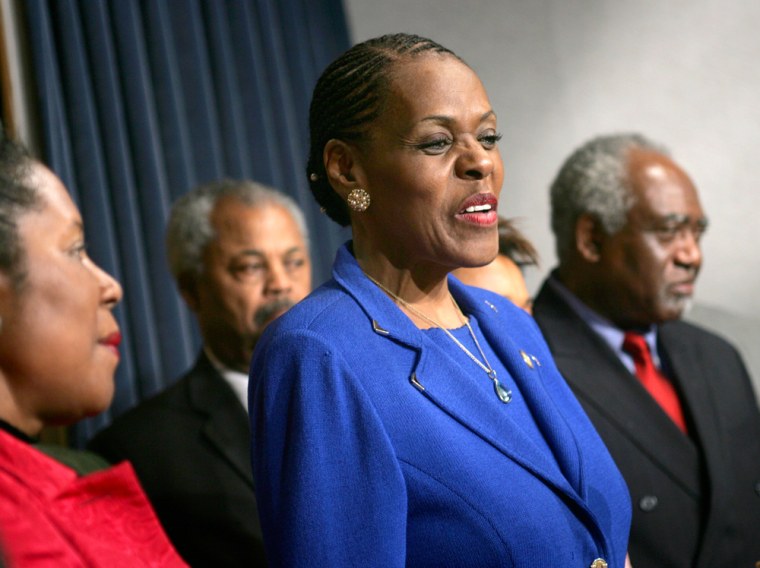The Congressional Black Caucus on Wednesday tapped Rep. Carolyn Cheeks Kilpatrick as its chairwoman for the next two years, when black lawmakers will wield more power in Congress than ever.
Kilpatrick, D-Mich., a former schoolteacher and the mother of Detroit Mayor Kwame Kilpatrick, was chosen unanimously. She succeeds Rep. Mel Watt, D-N.C.
“Watch for us,” Kilpatrick told reporters. “We will take this caucus to another level.”
Because Democrats will be in control when Congress convenes a new session Jan. 4, the 43-member caucus will take up a historic slate of leadership positions, including the third-ranking member in the House, Majority Whip James Clyburn of South Carolina.
It also will count as members four likely committee heads, up to 20 subcommittee leaders, and the only black senator, Barack Obama of Illinois, a possible presidential candidate.
“That’s more power than African-Americans have ever had in the Congress of the United States,” said Ronald Walters, a political scientist and director of the African American Leadership Institute at the University of Maryland.
Kilpatrick said she would continue the organization’s focus on issues such as health care, housing and education. Watt said the caucus also would seek to address racial inequities in the criminal justice system and the crisis in Sudan’s Darfur province.
Walters cautioned against expectations that black leaders would win dramatic legislative victories. Instead, he said, they probably will join Democratic leaders in charting a moderate course.
“They’re going to be circumspect in what they do in this period because it’s going to affect the politics of 2008,” he said. “I would expect that they would be very cautious.”
Nonetheless, the shift marks a dramatic turnabout from current Republican rule; there are no black Republicans in Congress, much less committee chairmen or party leaders.
The black leaders will have direct oversight on issues such as tax policy, homeland security and the legal system. With their committee gavels will come the ability to shape the public agenda through hearings and to regulate which bills get a public airing.
“The Congress is going to look like America. At least our side of the aisle will look like America,” said Georgia Democrat John Lewis, a civil rights leader who marched alongside the Rev. Martin Luther King Jr. in the 1960s before winning his House seat in 1986. “This is a historic Congress. It’s amazing what we’re going to be able to do.”
“Our problem is going to be more than anything else to find the resources,” he added.
Kilpatrick, 61, has represented a Detroit-area district since 1997.
California Rep. Barbara Lee also sought the leadership post but stepped aside as it became clear that Kilpatrick had more support.
